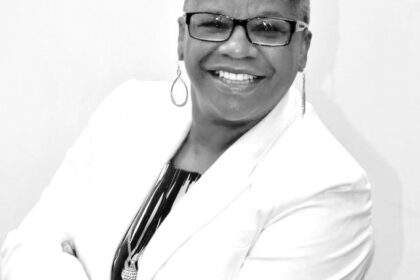
As an Ambassador, I have had an abundance of opportunities to share the mission of Food Solutions New England (FSNE) in Connecticut; Dr. King’s birthday and Black History Month led the way introducing conversations on race, our responsibilities as people of color during racially challenging times, and how we move forward.
The 21-Day Challenge is a continuation of those conversations. As an Ambassador, my mission is to build awareness of FSNE’s mission and identify people of color who wish to be a part of the food movement.
As I reach out to communities of color, I am always asked how, as a black woman, did I get involved? My response is that I originally thought that I was not a good fit. Here I am, a black woman at several events and all I see is white people. I saw this as another white space with a few “token” people of color and an overwhelming number of white people discussing the future of food in New England. If the mission is to address food sustainability among the New England States, where are my brothers and sisters? We may not be the majority in states like New Hampshire, Vermont, and Maine, but we do live in those states too. What about Connecticut, Massachusetts, and Rhode Island? I know there are thousands of us in those states; but we are not at FSNE. Why are we not present in this conversation?
I listened to the conversations at meetings my thoughts could not move beyond the belief that the lack of diversity was intentional. Once again, people of color are not in the planning and whites will devise a plan and tell us about it later.
I respectfully voiced my concerns about race, equity, and inclusion of people of color in the developing plan. The team members took a step back and reflected upon the path they’d taken and acknowledged after much soul searching and discussion that it was important to look at what role racism played in the decisions that were being made. We recognized it as implicit bias. Implicit bias refers to the attitudes or stereotypes that affect our understanding, actions, and decisions in an unconscious manner.
As a result, the team identified the Ambassador Project as an intentional venue to include people of color in the conversation. There are currently Ambassadors in three states: Massachusetts, Rhode Island, and Connecticut.
So, as I talk about racial equity, I always stress the importance of stepping out beyond our comfort level and taking a risk. We should not have to force ourselves upon people, but we should speak out if our voices are not represented. Talking about race is not easy, but as I tell people, the only thing I know that is easy is gaining weight. We all have a responsibility to move the food movement towards our 2060 goal and if it’s not inclusive, it will be a replication of what we have now. And that is depressing. Try this: every meeting or gathering look around the room and notice who is not in the room, who doesn’t look like me, and make it your business to invite someone who is not a reflection of your race or culture.
Marilyn Moore is a member of the Food Solutions New England Network Team. She is a strong advocate for racial and health equity and lives in Bridgeport, CT. Marilyn was recently elected to the Connecticut State Senate where she is Chair of the Human Services Committee and Vice Chair of the Environment Committee.




